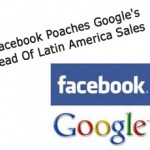 Brussels — Global search and advertising behemoth Google Inc., is slammed with new accusations, on Tuesday a French company has filed a fresh antitrust complaint against Google, accusing the search giant of blocking smaller competitors from using its powerful Adsense advertising platform for attracting advertisers.
Brussels — Global search and advertising behemoth Google Inc., is slammed with new accusations, on Tuesday a French company has filed a fresh antitrust complaint against Google, accusing the search giant of blocking smaller competitors from using its powerful Adsense advertising platform for attracting advertisers.
On Tuesday, 1plusV, which owns Ejustice.fr, one of three European companies that have already filed charges against Google, said it sent a supplementary complaint to the European Commission, claiming that Adsense was “the only truly effective way of deriving targeted advertising on a search engine,” and Google’s refusal to allow vertical search engines such as eJustice.fr access to Adsense was designed to stifle competition.
“1PlusV accuses Google of following a strategy of foreclosure against vertical search engines,” the company said in a statement. Vertical search engines restrict their answers to one category, such as travel information. Google, Microsoft Corp.’s Bing and others offer horizontal search engines that comb all categories for information.
Back in February 2010, Google announced that the European Commission said it had received complaints from three companies about “whether Google is doing anything to suppress competition or hurt our users and partners.” Those companies were Foundem, ejustice.fr, and Ciao! from Bing. Julia Holtz, Google’s competition counsel, said at the time that two of the companies – Ciao! from Bing, a Microsoft acquisition; and Foundem — had ties to rival Microsoft. Ciao was purchased by Microsoft in 2008.
According to 1plusV, when eJustice.fr complained to the Commission over other practices in February 2010, Google delisted it, severely restricting the traffic the site received. However, the company said, Google then relisted it in December — shortly after the Commission began a formal investigation into the giant — which contradicted Google’s claim that eJustice.fr was not of much value to users.
Marie-Cecile Rameau, a lawyer at a Paris-based law firm Bredin Prat, the firm representing 1plusV, was quoted in The Wall Street Journal as saying “vertical search engines are specifically dangerous competitors because they give more added value; they are kind of a last bastion competition to Google”.
Back then, Google responded in a blog post in which Google emphasized that it built its search engine for users, not Web sites. “It may seem obvious, but people sometimes forget this — not every Web site can come out on top, or even appear on the first page of our results, so there will almost always be Web site owners who are unhappy about their rankings. The most important thing is that we satisfy our users,” wrote Udi Manber, vice president of engineering, and Susan Wojcicki, senior vice president of product management.
“We have been working closely with the European Commission to explain many different parts of our business. While we have always tried to do the right thing for our users and advertisers, we recognize that there is always room for improvement,” Google said in a statement.
A spokesman for the commission, Amadeu Altafaj, said “Once the Commission receives the complaint, it will give Google the opportunity to comment on the allegations raised before deciding on what, if any, further steps to take.”
Bruno Guillard, the owner of 1plusV, said Tuesday that Google had begun to make those pages searchable again on its search engine as part of a process known as whitelisting, which began after European Union regulators opened their formal investigation on Nov. 30.
Google’s advertising service, called AdSense, permits advertisers to purchase a keyword that, when entered in as a search query, produces an advertising link alongside the search results. Rameau, the lawyer, said, “The massive whitelisting since the opening of the proceedings by the commission shows clearly that the blacklisting, in March, was completely arbitrary.”
That practice “impedes the development of efficient vertical search engines” that could compete with Google’s specialized services, Rameau said in Brussels. It also prevented consumers from gaining access to technologies that could offer them more search options, she said.
Guillard said Google’s actions had meant losses for his company amounting to “a lot of millions” of euros, but he declined to give a precise figure. Aides to Guillard said the company was still calculating the total losses.
Al Verney, a spokesman for Google, said it was continuing to work “closely with the European Commission to explain many different aspects of our business.” He declined to comment on the specific allegations by 1plusV.
Echoing Google’s previous statements about the case in Europe, Verney said the company had “always tried to do the right thing for our users and advertisers,” and added, “there is always room for improvement.”
Guillard also stated that Google’s actions meant that another site operated by 1plusV, Eguides.fr, had lost a contract with the French national library to help make its resources available online.
“Because of the traffic collapse” the French library “understandably thought that Eguides.fr was no longer a suitable partner and signed an agreement with Microsoft,” 1plusV said.
The complaint also stated that Google disregards web guidelines and violates some websites’ warnings not to list their content in search results, including pages from the French senate website, France’s competition authority and the EU-backed online library Europeana. This enables Google’s search results an unfair advantage over rivals, 1PlusV said. By displaying Google Books pages in its search results, the company may be violating the search engine’s own anti-spam rules, 1PlusV said.
vNevertheless, the commission has power to impose fines of as much as 10 percent of revenue for monopoly abuses. The EU’s highest-ever penalty of 1.06 billion euros ($1.45 billion) was against Intel Corp. in 2009.
Bruno Guillard, founder of 1PlusV, talks about the French web publisher’s complaint to European Union regulators against Google for refusing to allow so-called vertical search sites to use its advertising service. Guillard speaks from Brussels with Andrea Catherwood on Bloomberg Television’s “The Pulse.” (Source: Bloomberg)


